Social Studies Worksheets for 5-Year-Olds
116 filtered results
-
From - To
Introduce your 5-year-old to the fascinating world around them with our tailor-made Social Studies worksheets! Specifically designed for young learners, these engaging and colorful worksheets cover a broad range of topics suitable for their age and curiosity level. From understanding family roles and community helpers to recognizing symbols and exploring cultural diversity, our Social Studies for 5-Year-Olds collection offers a perfect blend of fun and education. Each activity is crafted to spark your child's interest in the social environment, laying a solid foundation for lifelong learning. Start your child's journey into the world of social studies with our delightful worksheets today!


Towns Worksheet
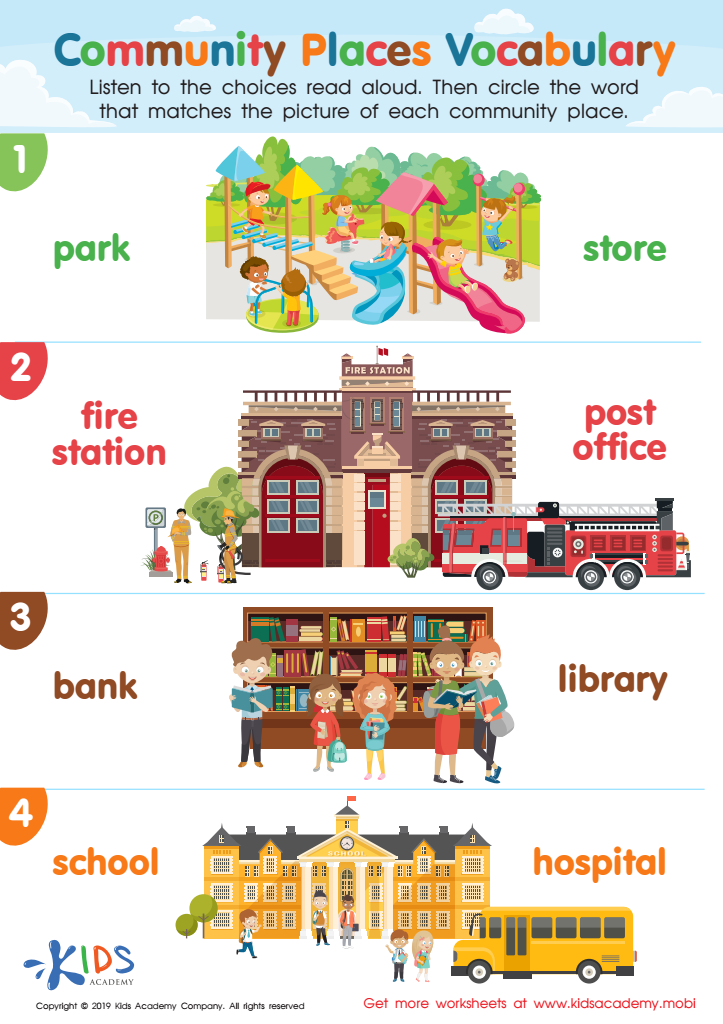

Community Places Vocabulary Worksheet
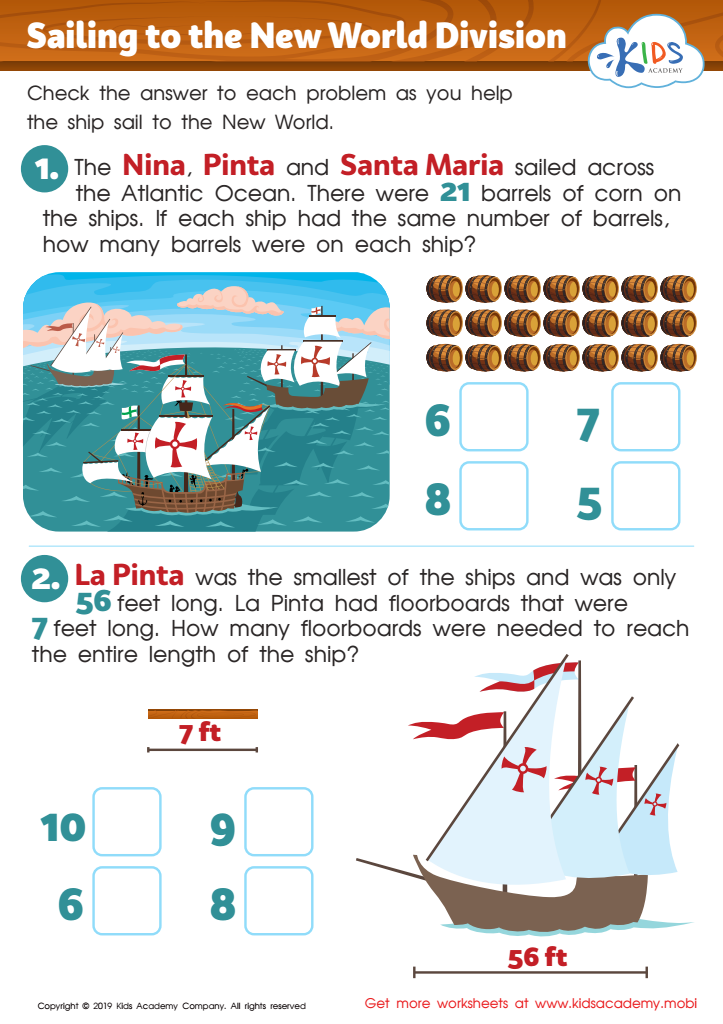

Sailing to the New World Division Worksheet
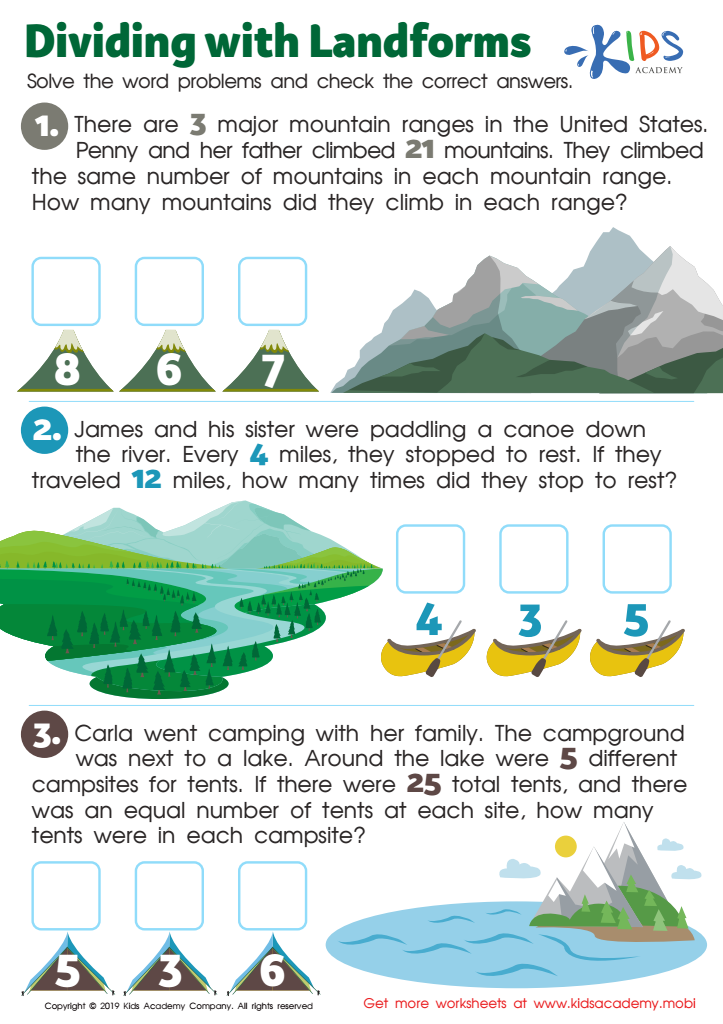

Dividing with Landforms
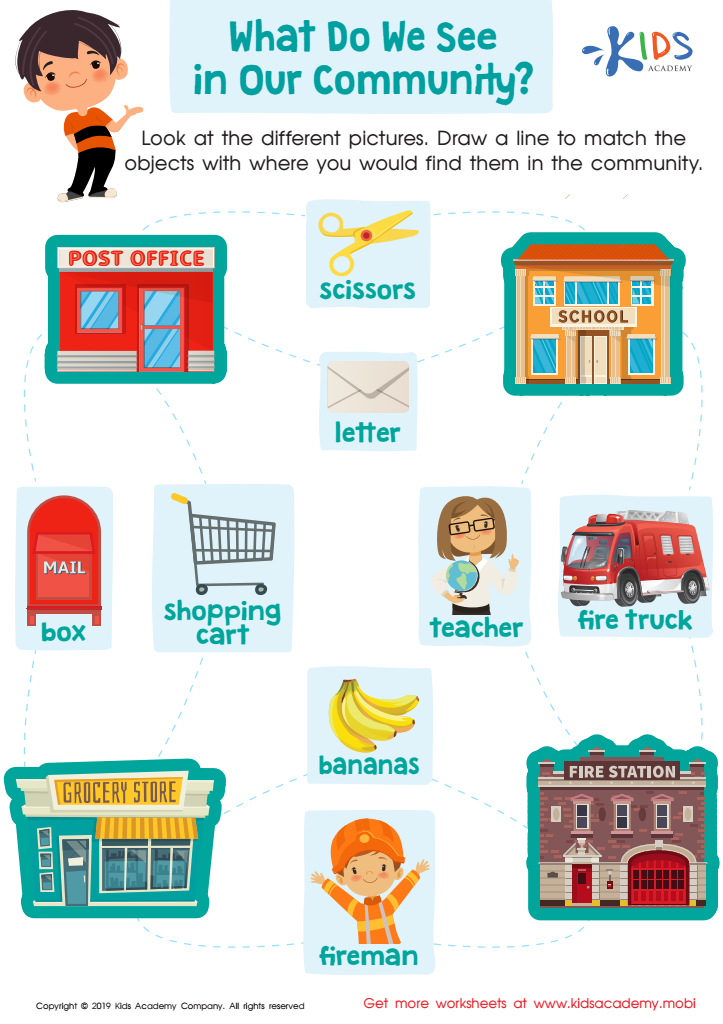

What Do We See in our Community? Worksheet
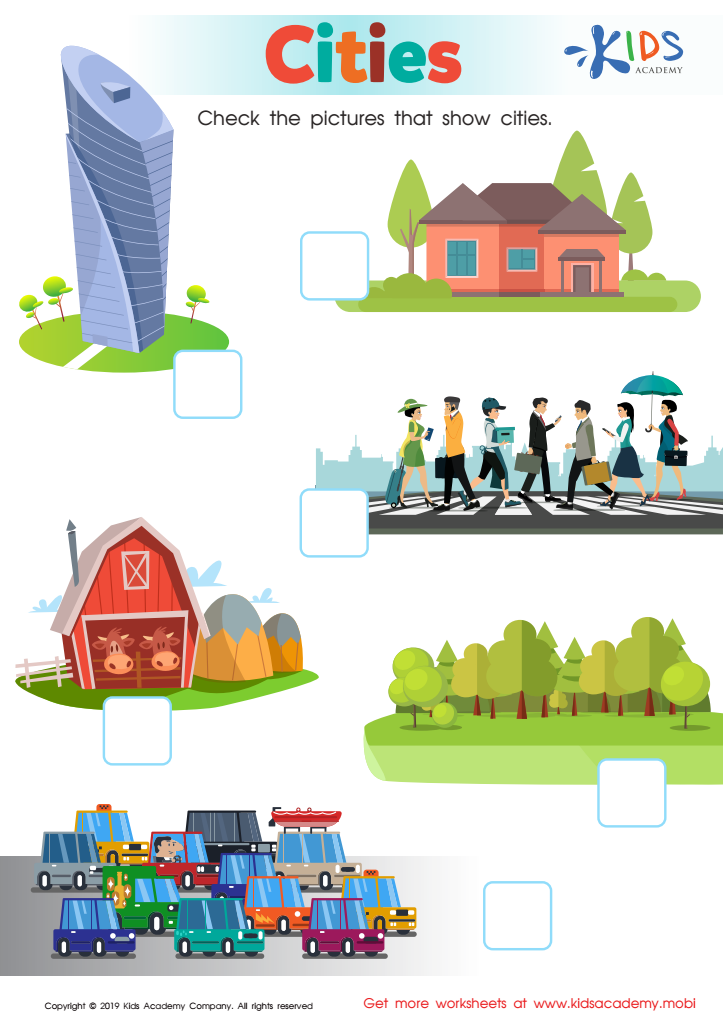

Cities Worksheet
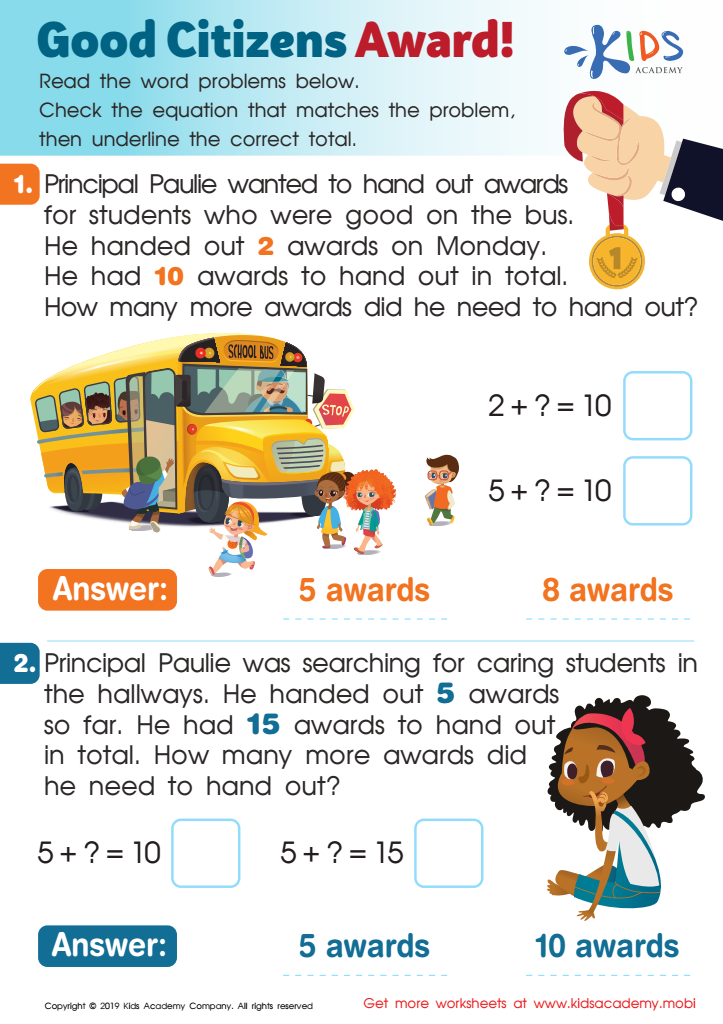

Good Citizens Award! Worksheet
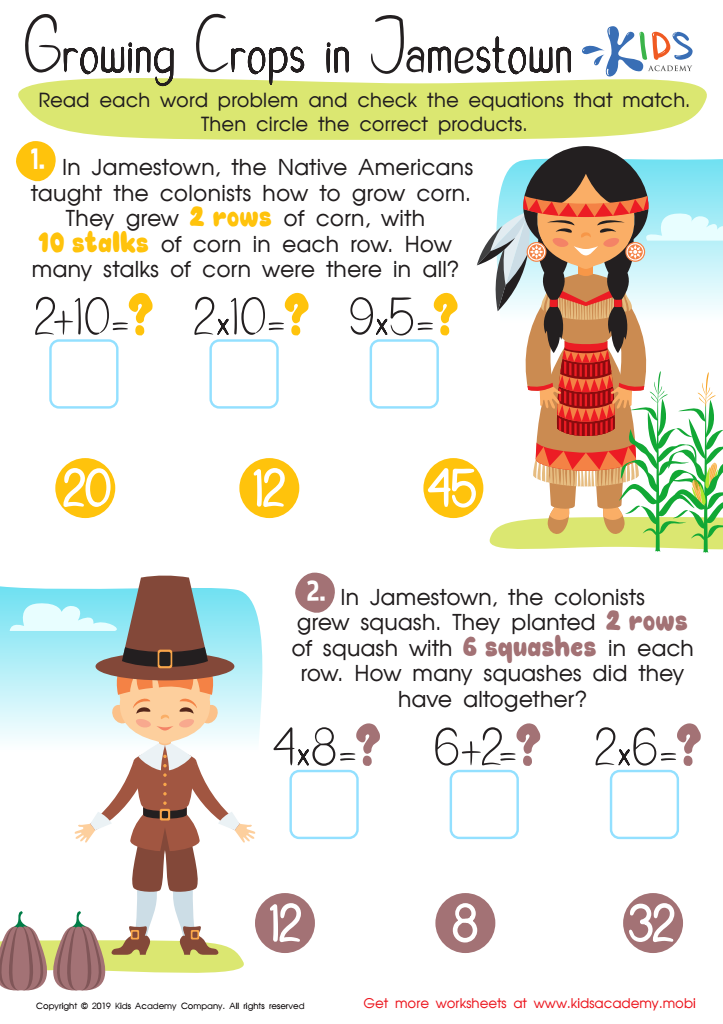

Growing Jamestown Worksheet
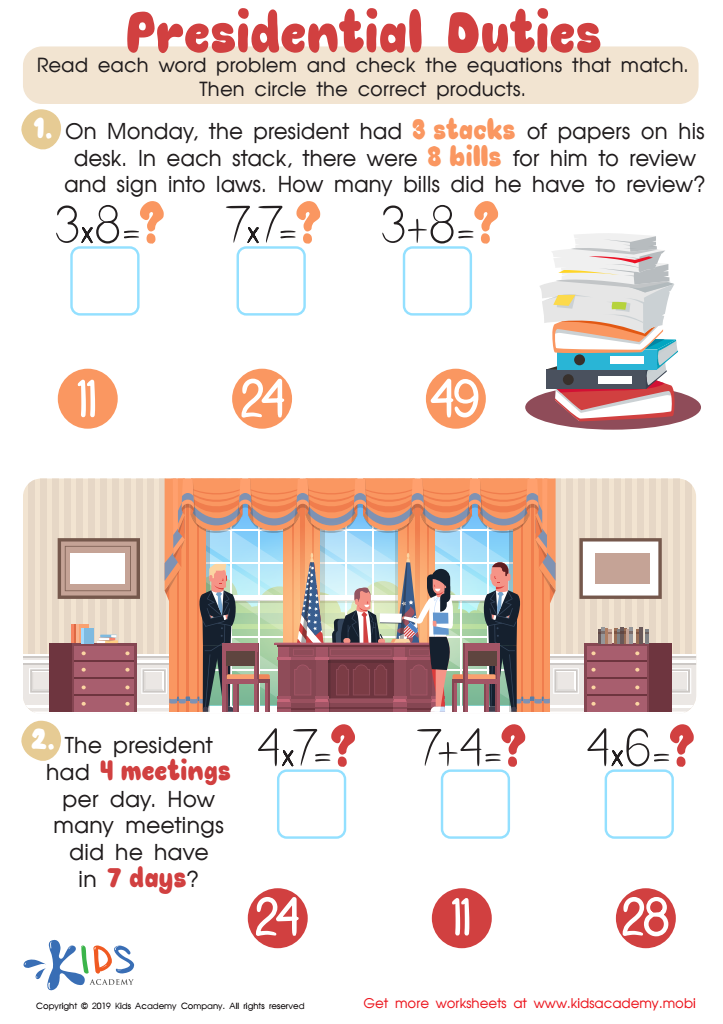

Presidential Duties Worksheet
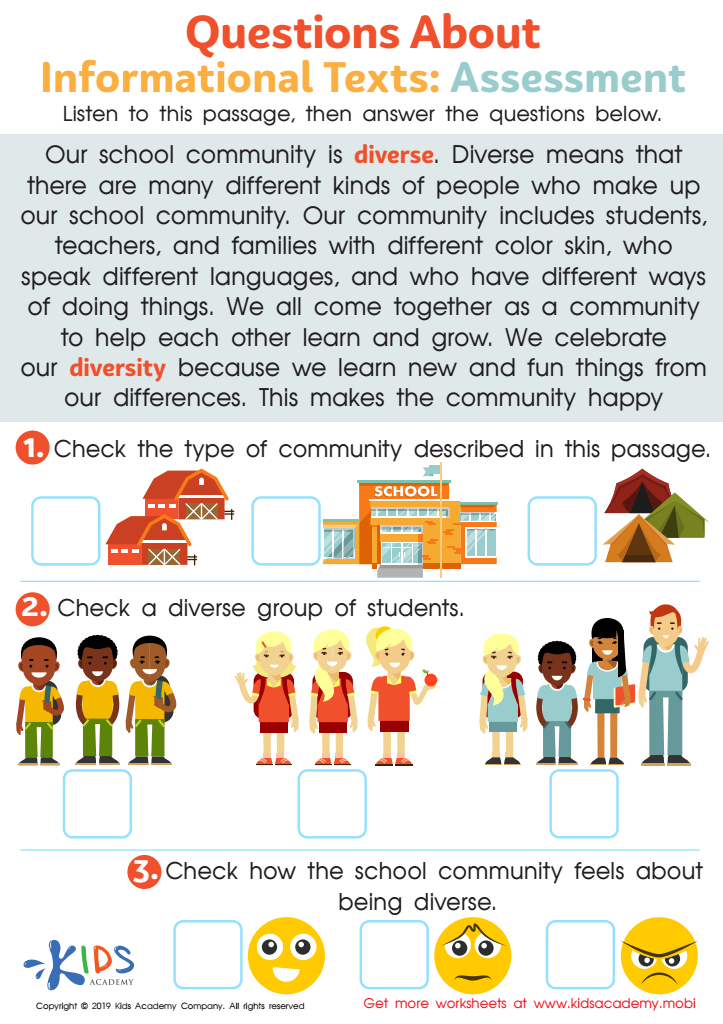

Questions About Informational Texts: Assessment 1 Worksheet
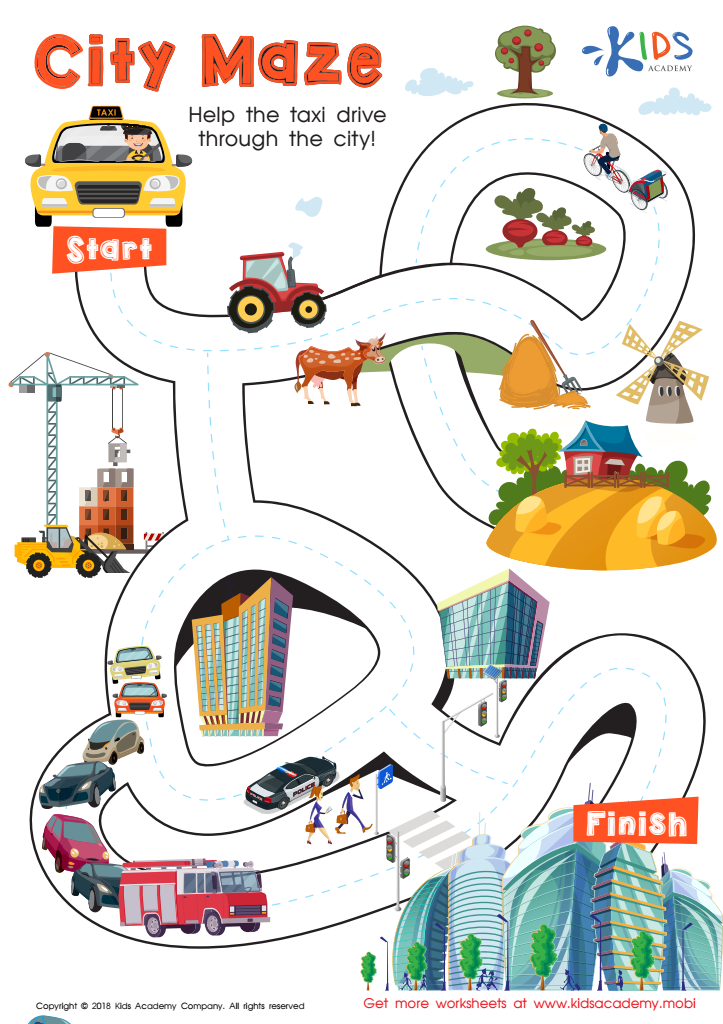

City Maze Worksheet


Cities Worksheet
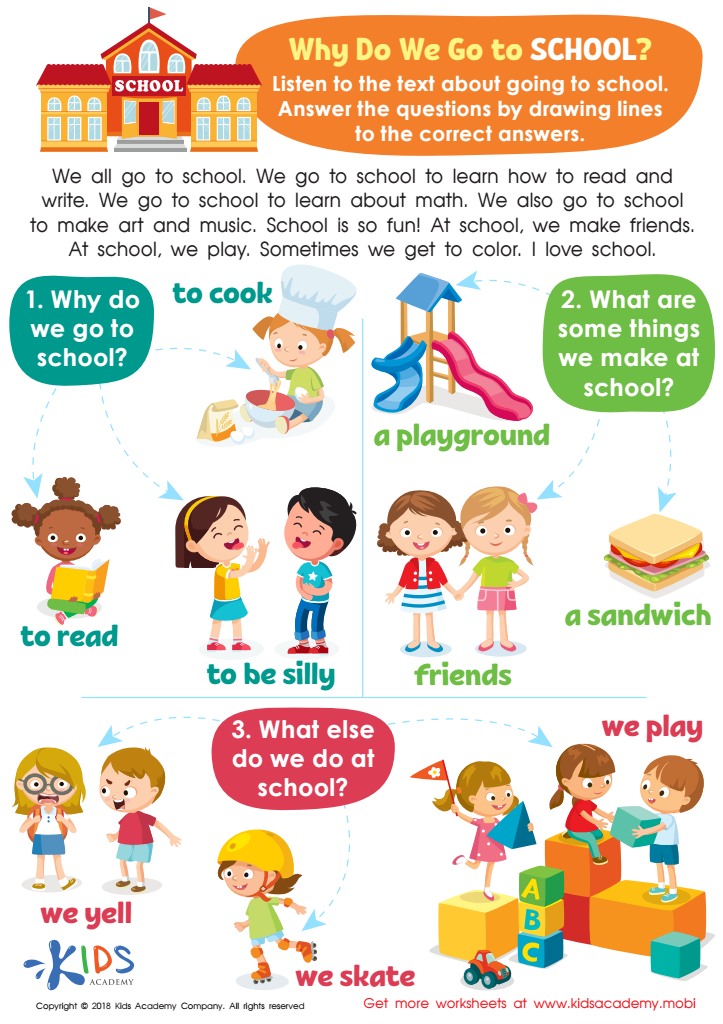

Why Do We Go To School? Worksheet
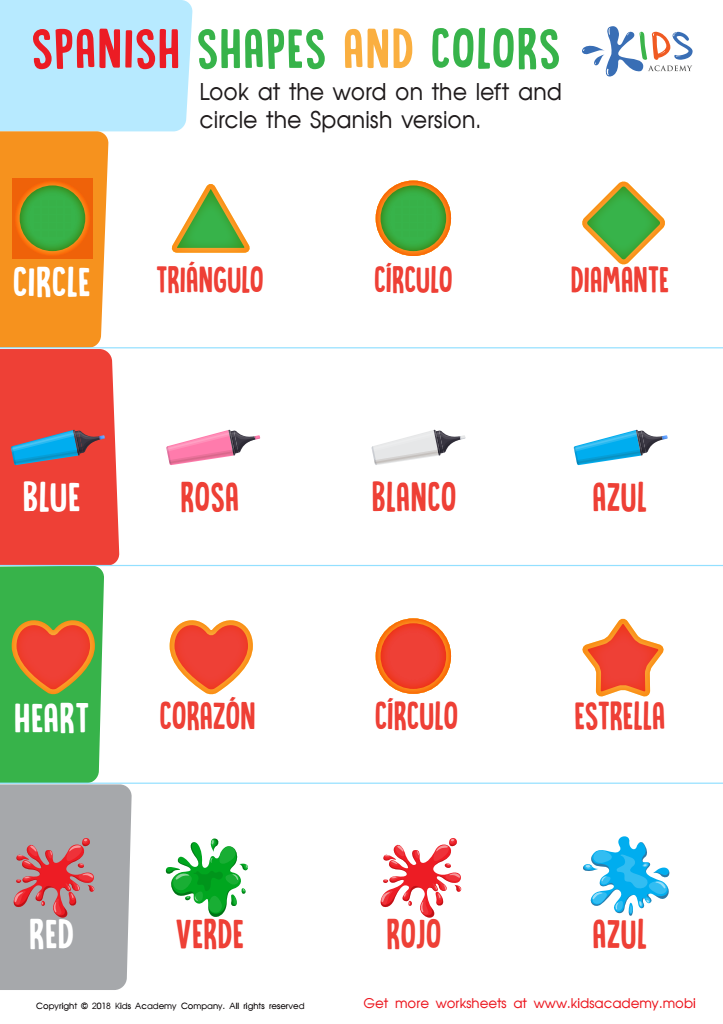

Spanish Shapes and Colors Worksheet
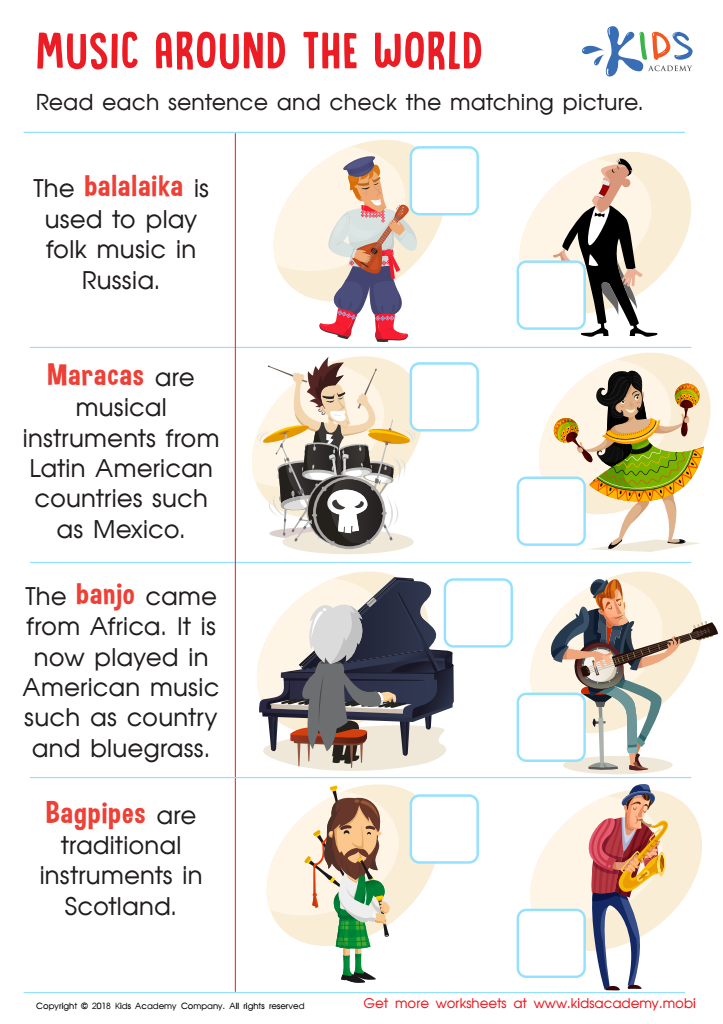

Music Around the World Worksheet
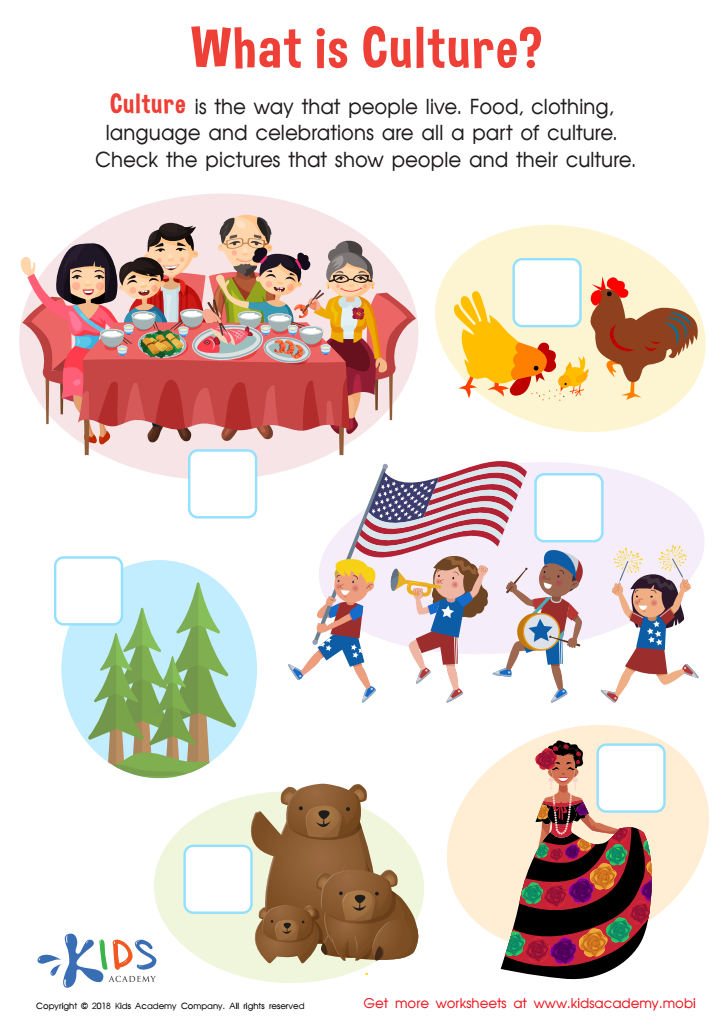

What Is Culture? Worksheet
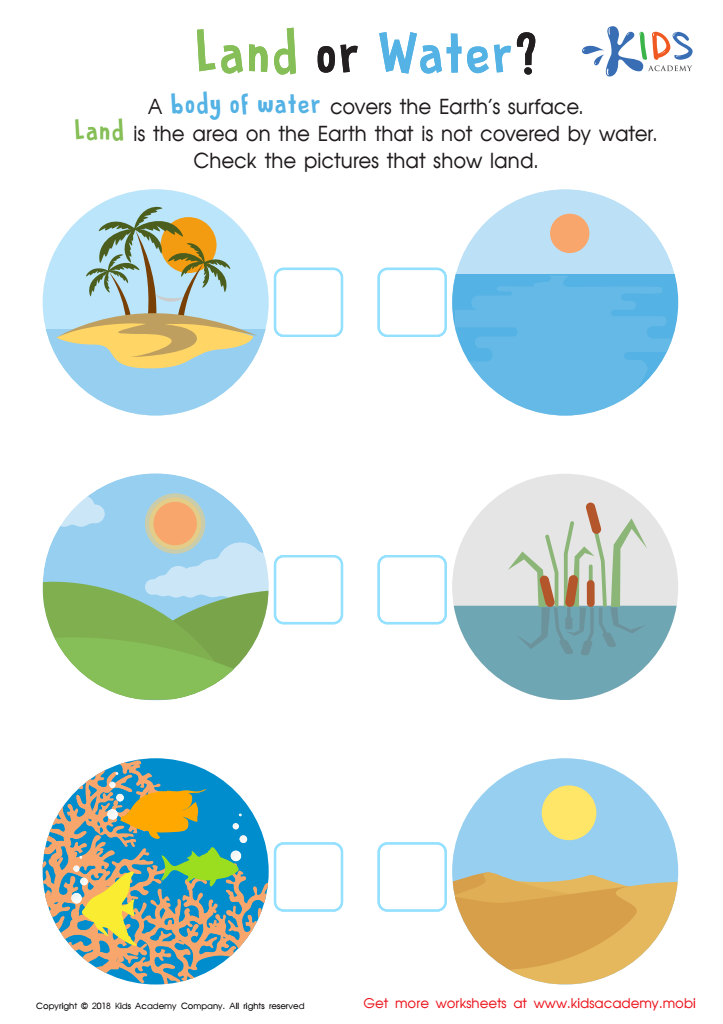

Land or Water Worksheet
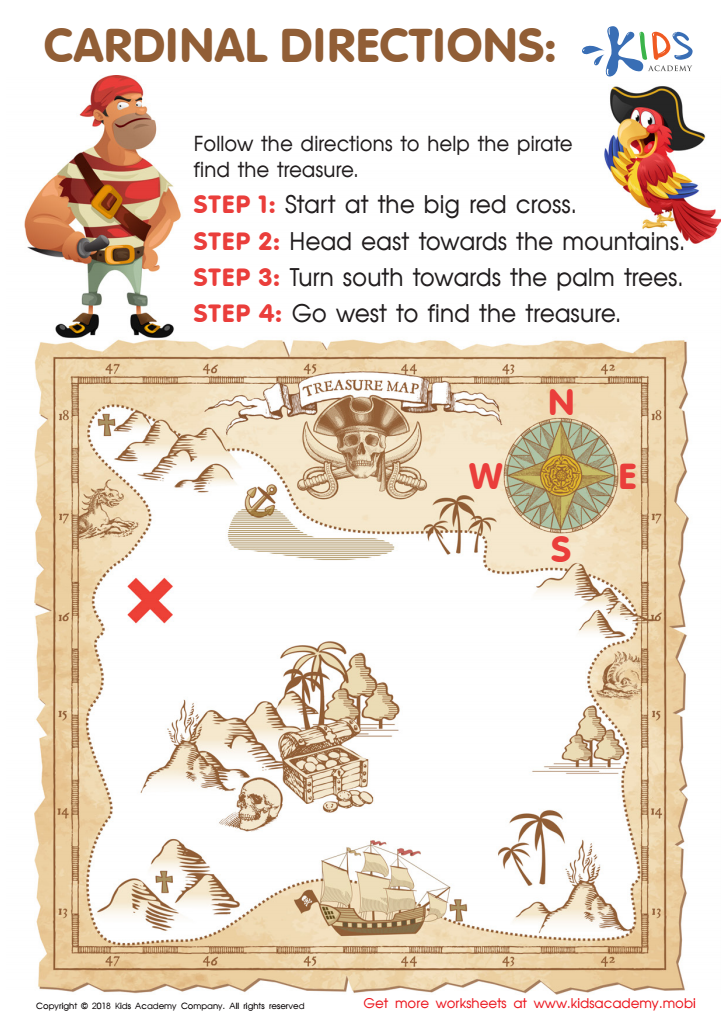

Cardinal Directions Treasure Map Maze Worksheet
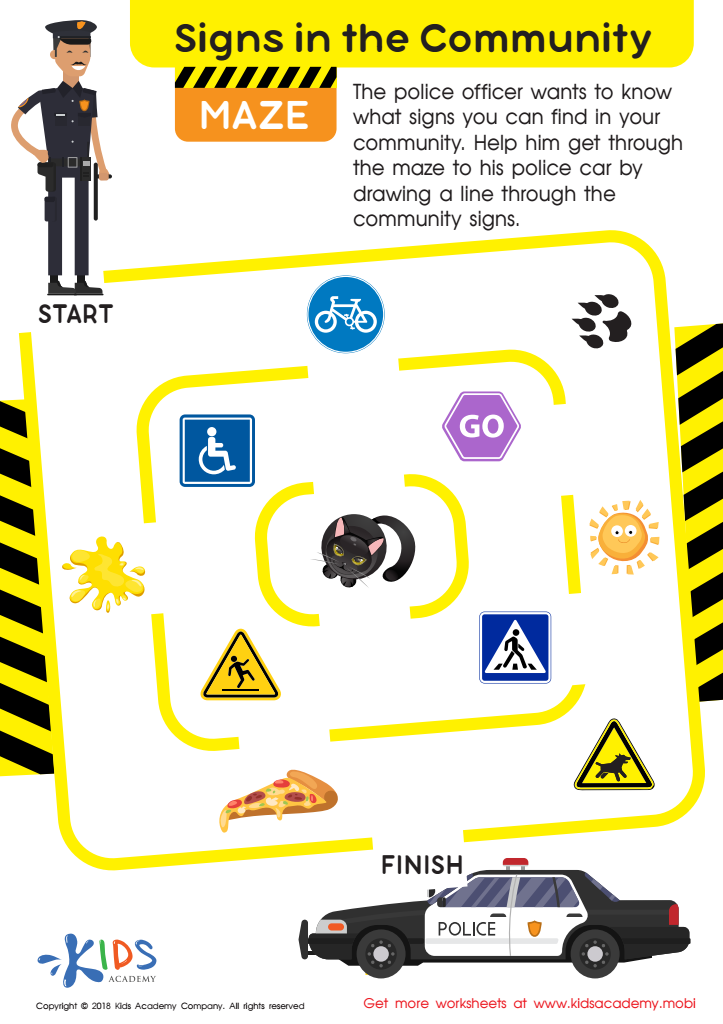

Signs in the Community: Maze Worksheet
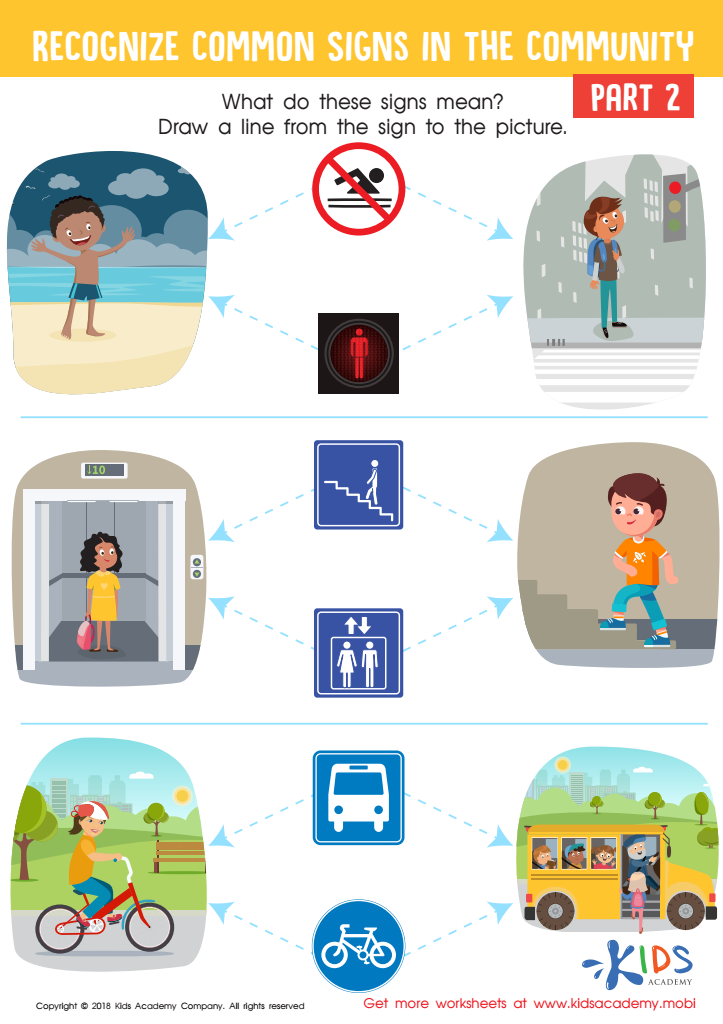

Recognize Common Signs: Part 2 Worksheet
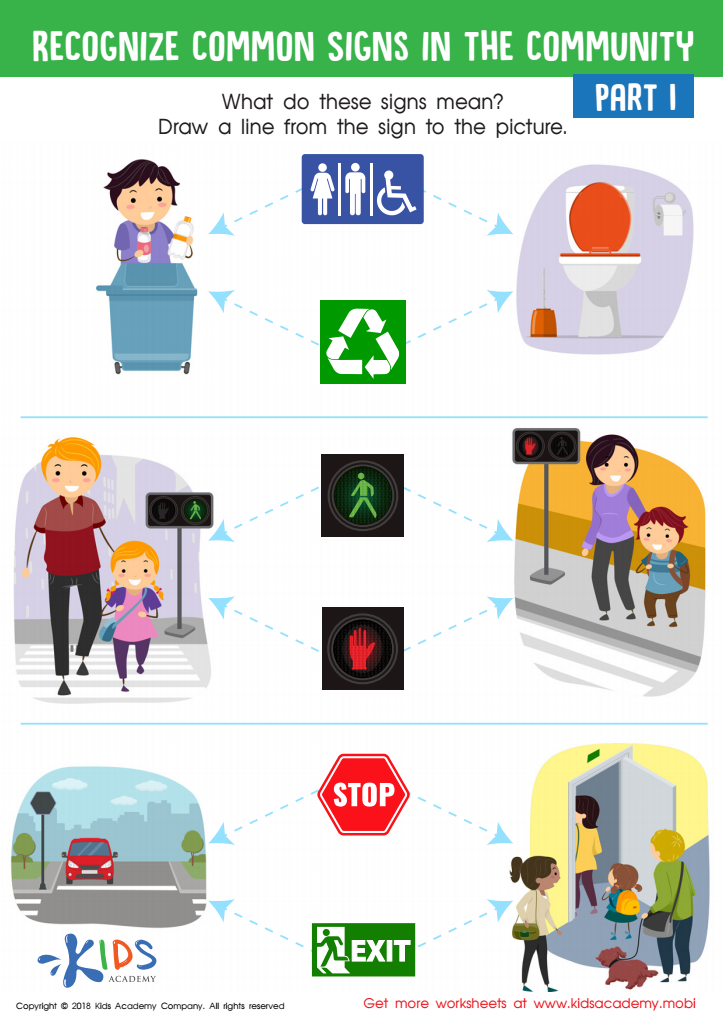

Recognize Common Signs: Part 1 Worksheet
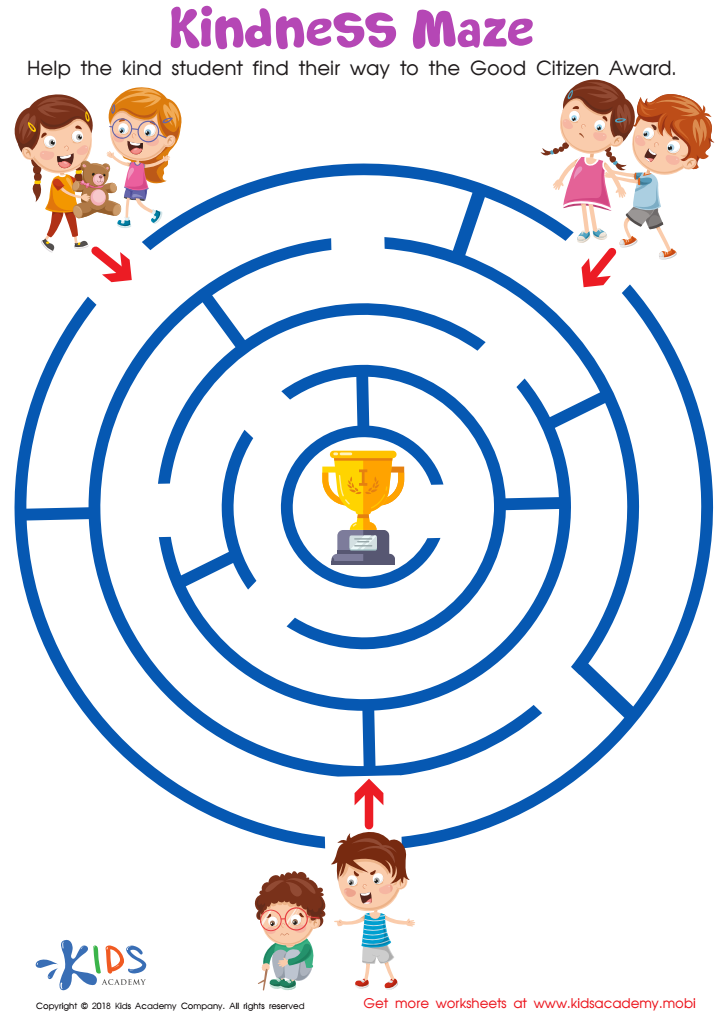

Kindness Maze Worksheet
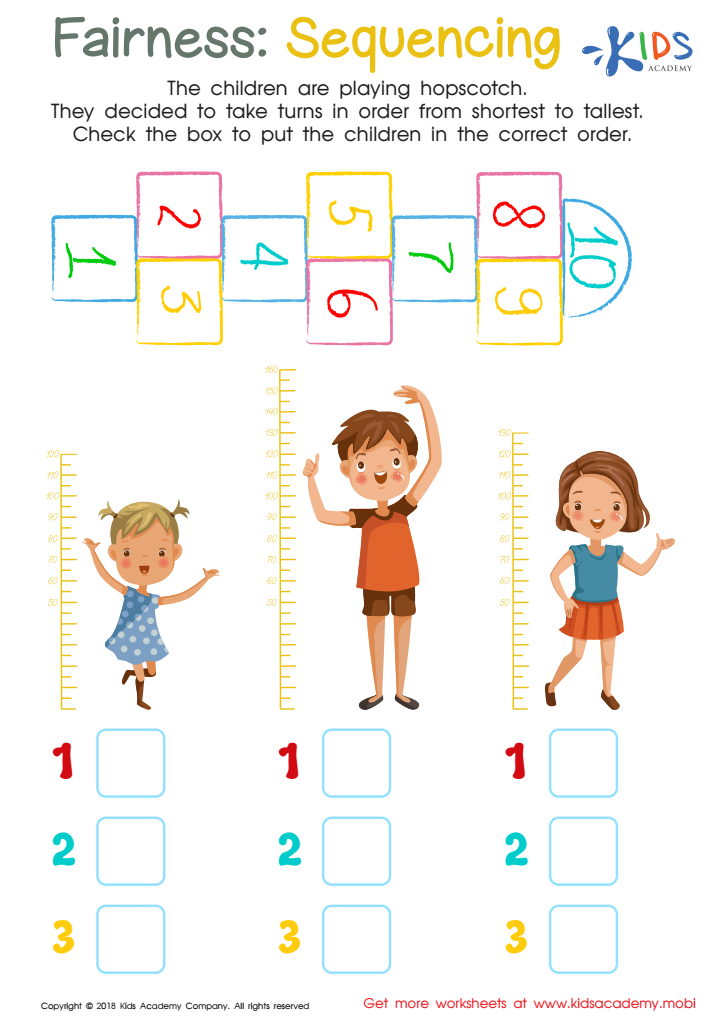

Fairness: Sequencing Worksheet
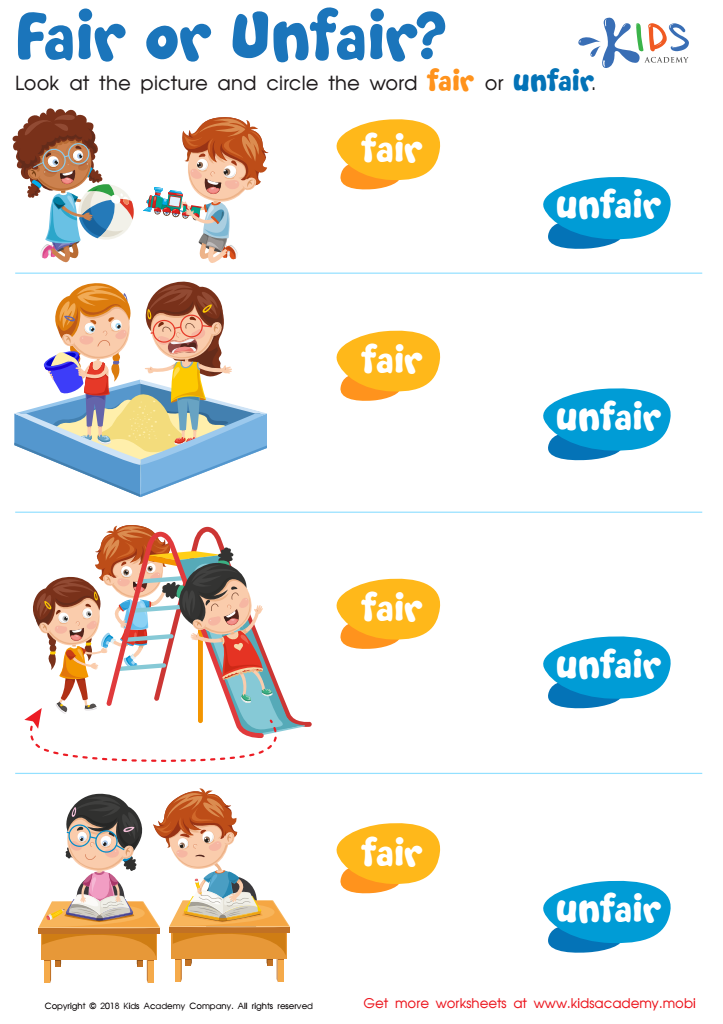

Fair or Unfair Worksheet
Social Studies for 5-Year-Olds plays a pivotal role in early childhood education, laying down the foundation for understanding community, culture, geography, and history. The use of worksheets in teaching Social Studies to this age group proves to be an invaluable tool for several reasons. Firstly, worksheets tailored for 5-Year-Olds are designed with their developmental stage in mind, featuring activities that engage their curiosity while fostering critical thinking and observational skills. Through these interactive resources, children are introduced to basic concepts of Social Studies in a manner that is both educational and entertaining.
Moreover, worksheets in Social Studies for 5-Year-Olds help in enhancing literacy and communication skills. As children engage with questions and activities related to people and places around them, they learn new vocabulary and concepts, which enrich their language and understanding of the world. Additionally, these worksheets encourage children to work independently or in groups, promoting social skills and teamwork.
In essence, Social Studies worksheets for 5-Year-Olds are not just about learning facts; they are about building a foundation for lifelong learning and curiosity about the world. They equip young learners with the skills to explore, question, and understand the diverse society they are part of, making them an essential component of early childhood education.

 Assign to My Students
Assign to My Students























